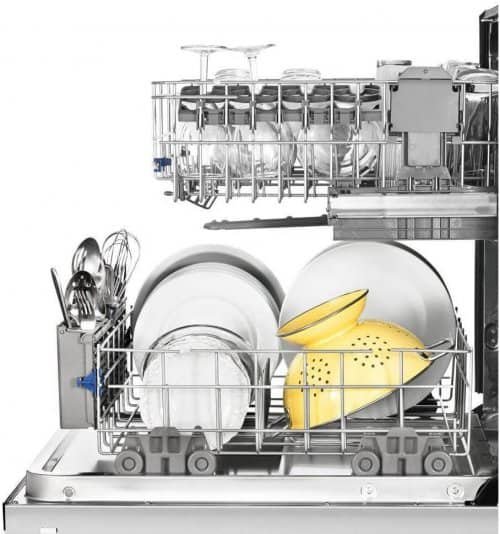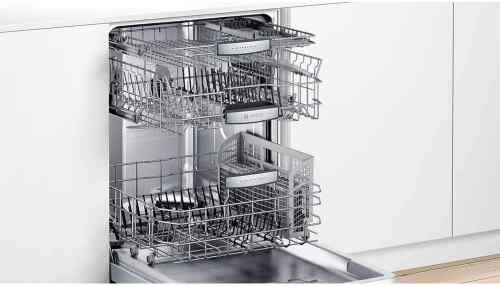Dishwashers have become an essential appliance in modern kitchens, making the task of cleaning dishes a breeze. However, when it comes to cleaning the dishwasher itself, there can be some confusion regarding the best cleaning agents to use. Bleach, a common household cleaner, is known for its effectiveness in various cleaning tasks, but can it be safely used in a dishwasher? In this article, we will explore the use of bleach in dishwashers, its potential risks, and alternative cleaning methods to keep your dishwasher in optimal condition.
Maintaining a clean dishwasher is important not only for hygienic purposes but also to ensure the longevity and efficiency of the appliance. Over time, food particles, grease, and mineral deposits can build up inside the dishwasher, leading to unpleasant odors, clogged spray arms, and reduced cleaning performance. To combat these issues, various dishwasher cleaners are available on the market.
Table of Contents
Understanding Dishwasher Cleaners
- Types of Dishwasher Cleaners
- How Dishwasher Cleaners Work
Types of Dishwasher Cleaners
Dishwasher cleaners typically fall into two categories: commercial cleaners and DIY alternatives. Commercial dishwasher cleaners are specifically formulated to remove tough stains, grease, and mineral deposits. They often come in the form of powder, gel, or tablets and can be found in most grocery or home improvement stores.
On the other hand, DIY alternatives involve using common household ingredients to clean the dishwasher. Vinegar, lemon juice, baking soda, and citric acid are some popular DIY options. These natural cleaners are considered milder and more environmentally friendly than commercial cleaners.
How Dishwasher Cleaners Work
Dishwasher cleaners work by dissolving or breaking down food residue, grease, and mineral deposits. They typically contain enzymes, surfactants, or citric acid, which help to remove stains and eliminate odors. Commercial cleaners often have stronger formulations compared to DIY alternatives, allowing them to tackle tougher stains and provide a deep clean.

Can You Use Bleach in a Dishwasher?
Bleach is a powerful disinfectant and cleaner commonly used for laundry and household cleaning tasks. However, it is generally not recommended to use bleach in dishwashers. Here’s why:
- Risks of Using Bleach in a Dishwasher
- Alternative Cleaners for Dishwashers
Risks of Using Bleach in a Dishwasher
- Damage to Dishwasher Components: Bleach is a corrosive substance that can damage the rubber seals, gaskets, and other delicate components of your dishwasher. Over time, this can lead to leaks and costly repairs.
- Release of Harmful Fumes: When bleach comes into contact with other dishwasher detergents or residues, it can create toxic fumes. These fumes can be harmful to your health and may even damage nearby surfaces or other kitchen items.
- Reduced Cleaning Performance: Contrary to popular belief, bleach does not necessarily enhance the cleaning performance of a dishwasher. In fact, it may even interfere with the effectiveness of your regular detergent, leading to subpar cleaning results.
Alternative Cleaners for Dishwashers
Instead of bleach, there are several safer and effective alternatives to clean your dishwasher:
- Vinegar: White vinegar is a versatile and affordable cleaning agent that can help remove mineral deposits and odors. Simply place a cup of vinegar in a dishwasher-safe container on the top rack and run a hot water cycle.
- Baking Soda: Baking soda is a mild abrasive and deodorizer. Sprinkling some baking soda on the bottom of your dishwasher and running a short cycle can help eliminate odors and freshen up the appliance.
- Citric Acid: Citric acid, found in lemons and other citrus fruits, can effectively remove mineral deposits. You can use citric acid powder or squeeze lemon juice into a dishwasher-safe container placed on the top rack.
Tips for Maintaining a Clean Dishwasher
To keep your dishwasher clean and in optimal condition, consider the following tips:
- Regular Cleaning Routine
- Using Dishwasher-Safe Cleaners
- Proper Loading Techniques
Regular Cleaning Routine
Make it a habit to clean your dishwasher regularly. A monthly cleaning routine can prevent the buildup of residue and ensure the appliance functions efficiently. Choose a cleaning method that suits your preferences and available ingredients, whether it’s a commercial cleaner or a DIY solution.
Using Dishwasher-Safe Cleaners
When using DIY alternatives like vinegar or citric acid, ensure that you place them in a dishwasher-safe container. This prevents any potential damage to the dishwasher interior and allows the cleaner to distribute evenly during the cleaning cycle.
Proper Loading Techniques
Proper loading of dishes and utensils is crucial for optimal cleaning. Avoid overcrowding the dishwasher, as this can hinder water flow and reduce cleaning performance. Additionally, scrape off excess food particles before loading to prevent clogs and the need for excessive cleaning.
Can I use vinegar as a dishwasher cleaner?
Yes, vinegar is a safe and effective dishwasher cleaner. It can help remove mineral deposits and odors when used in the proper quantity during a dishwasher cycle.
Is it safe to use lemon juice in the dishwasher?
Yes, lemon juice or citric acid can be used in the dishwasher to remove mineral deposits. However, ensure that you use it in moderation and in a dishwasher-safe container.
How often should I clean my dishwasher?
It is recommended to clean your dishwasher at least once a month to prevent buildup and maintain optimal performance. However, you may need to clean it more frequently if you notice persistent odors or stains.
Are commercial dishwasher cleaners necessary?
Commercial dishwasher cleaners are not necessary for routine cleaning. However, they can be beneficial for deep cleaning or tackling stubborn stains and mineral deposits.
Can I use baking soda to clean my dishwasher?
Yes, baking soda is a mild abrasive and deodorizer that can be used to clean your dishwasher. Sprinkling some baking soda on the bottom of the dishwasher and running a short cycle can help eliminate odors and freshen up the appliance.
Conclusion
While bleach is a powerful cleaner for many household tasks, it should be avoided when it comes to cleaning dishwashers. Its corrosive nature can damage dishwasher components, release harmful fumes, and interfere with cleaning performance. Instead, opt for safer alternatives like vinegar, baking soda, or citric acid to keep your dishwasher clean and fresh. Regular maintenance, proper loading techniques, and the use of dishwasher-safe cleaners will help ensure the longevity and efficient operation of your appliance.

